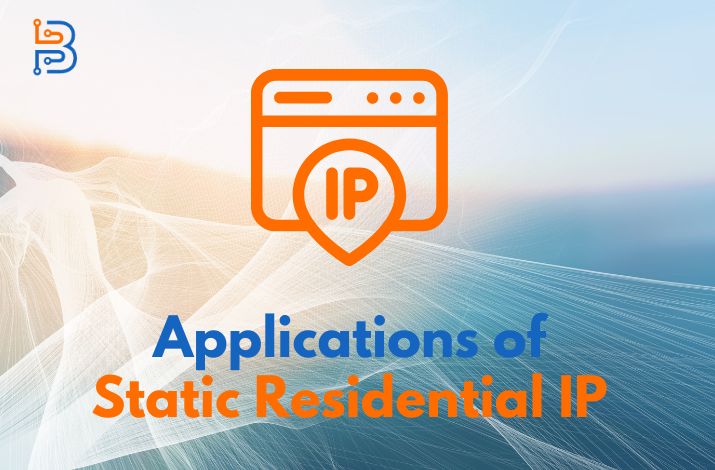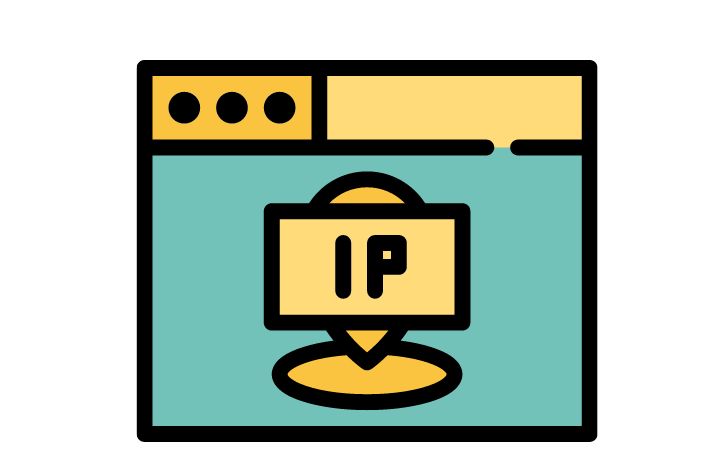How Static Residential IP Can Benefit Your Business and Online Activities

Most internet users have a rough idea of what IP addresses are, strings of digits identifying each device on a network. While this is true for some common use cases, such as web browsing, there is a lot more you can achieve online if you know more about IPs. Especially if you are running a business.
A static IP address can help you manage your network, enable remote access, host a website, and many other use cases. However, the term itself is somewhat shrouded with misconceptions and sometimes confused static proxies.
Static and Dynamic IP Addresses
When setting up home devices, such as a laptop or a router, your Internet Service Provider (ISP) typically issues a dynamic IP. As the name suggests, a dynamic IP changes at certain intervals or each time you log in to use the network.
These IP addresses are the most common and sufficient for casual browsing, media streaming, or other home internet tasks. In many cases, home routers may provide dynamic IPs to any device that connects. Each time it disconnects, it may get a different IP assigned.
Dynamic IPs help ISPs and your network router to control the connections better. However, in some cases, you might have or want to have a static IP address.
Static IP addresses, as the name implies, never change. No matter how much time passes or how often you log off and connect again, the digits in the IP address won’t change. ISPs assign such IPs to some homes or businesses by verifying the exact geo-location of the device using it.
It might be that your home Wi-Fi router will have a static IP address and then distribute dynamic IPs to all other devices connecting to that network. Static IPs provide more control for the user as he can then assign dynamic IPs in his own network.
They are also useful for identification purposes, as you always connect to other servers through the same IP. It’s also a reason why static IPs are a bit faster for uploading or downloading data. In many cases, they are also preferred when looking for a proxy server to hide your IP and location.

Use Cases of Static IPs
Static IPs can achieve all the basic internet tasks you would expect from a dynamic IP. However, since these IPs are unchanging, they provide more control for network administrators and can be used for additional tasks.
It can be as simple as sharing a printer or a display on the network. The use cases below are a bit more complicated but especially useful for businesses. It’s rare that an individual user will need such functions from a home network.
Hosting web servers for websites, games, or file storage is most efficient with a static IP address. In fact, hosting a web server with a dynamic IP is only possible in theory for most cases. That’s because if your IP changes constantly, visitors will need to ask you for a new IP to log in.
Most software solutions for running web servers will require you to have a static IP and won’t even support a dynamic one. Static addresses make it possible to implement access permissions and track incoming traffic.
One popular use case among business owners is creating dedicated services for email. It’s only possible with a static IP, as otherwise, the connection will work only until your IP changes.
Virtual Private Networks and remote access points are not just a convenience for today’s businesses. It’s often a necessity. A hybrid work-from-home environment requires employees to safely access internal systems and data from home.
There are ways to outsource the remote access function, but most companies prefer to do it themselves. Mainly because of the security risks, but it’s also relatively easy once you have a static IP address.
Static and Rotating IPs in Proxies
For all the scenarios mentioned above, you can simply change your IP address parameters on a router or on another connected device. In some cases, you might need to contact your ISP and ask him to assign you a static IP to make the needed changes.
However, for some other tasks, it’s unwise to use your own IP address, no matter whether static or dynamic. If you want to automatically collect data online (web scraping), perform ad verification, or manage multiple social media accounts, you risk the IP address getting banned.
In such cases, you want to use a static residential IP from a proxy provider. Such a service will provide you with a connection to a device in a different location that you can use to route your traffic or use as a security filter.
While static and dynamic IPs have some similarities with static and rotating proxies, the concepts are a bit different. It’s important to understand which one you need.
Residential proxies provide a connection to an IP that is verified and runs on a physical device. Typically, such proxy servers are static – the IP address does not change until you want to change it. If you also choose a private connection to such a proxy, you will maximize both your efficiency and privacy.
Rotating proxies, on the other hand, are those that change the IP address for a given period or task. Rotating proxies are most frequently used with proxy types that are easier to identify – datacenter proxies.
These proxies use commercial internet connections and are based in high-tech data centers. Rotating them does not affect the performance so much while decreasing the chances of them being detected as proxies.
Conclusion
A static residential IP used by can help with anything from collecting data to ensuring remote access or running a local server. However, it’s important to not mix the terms and know which static residential IP you need. One requires you to change your network parameters, while the other to order a proxy service.






